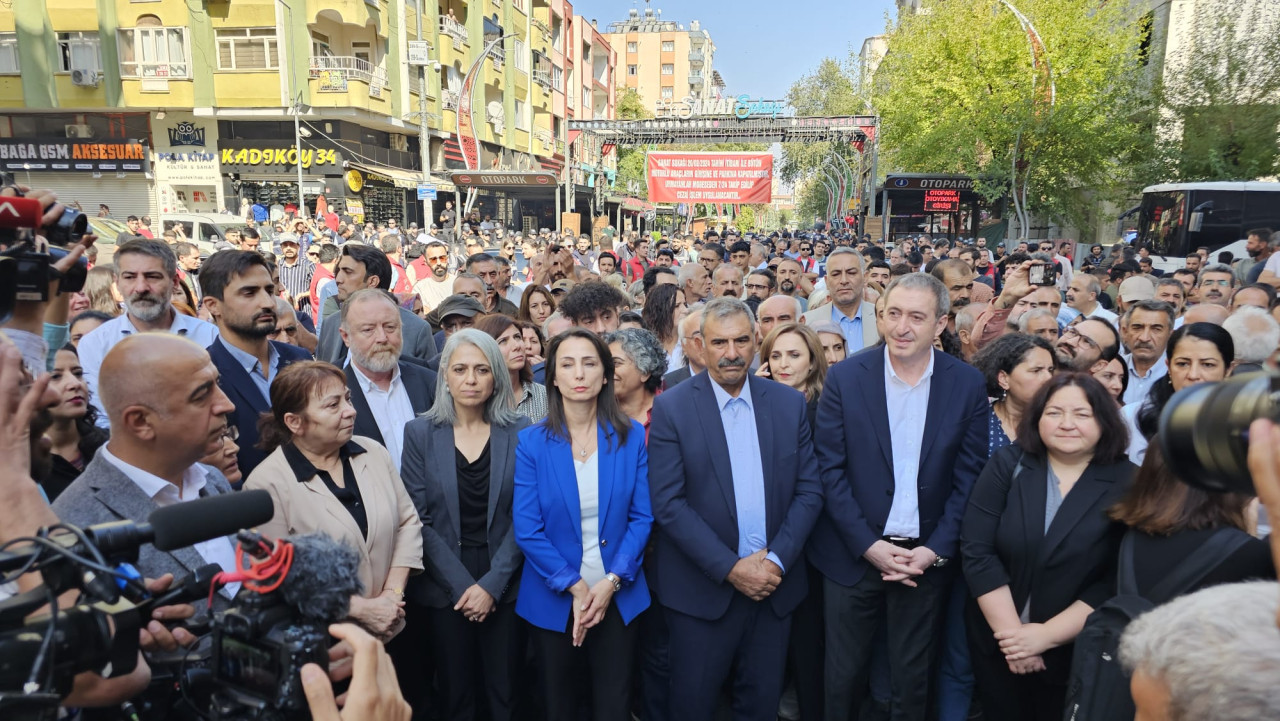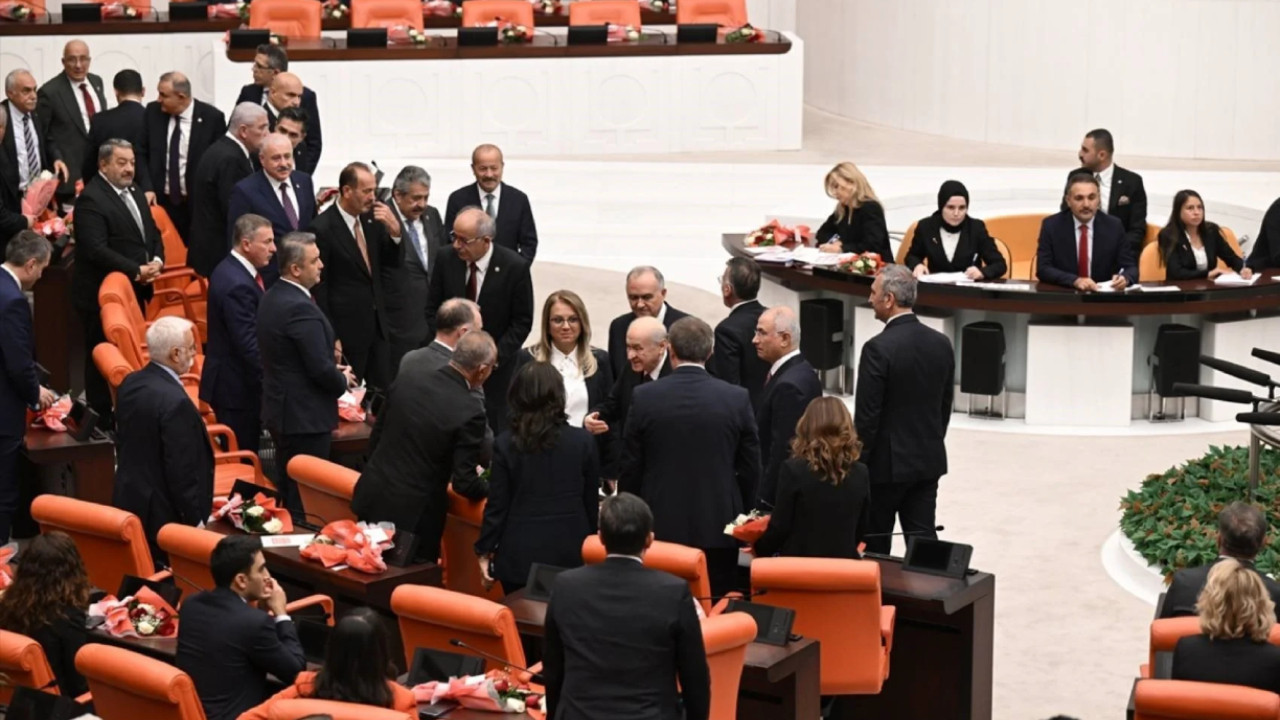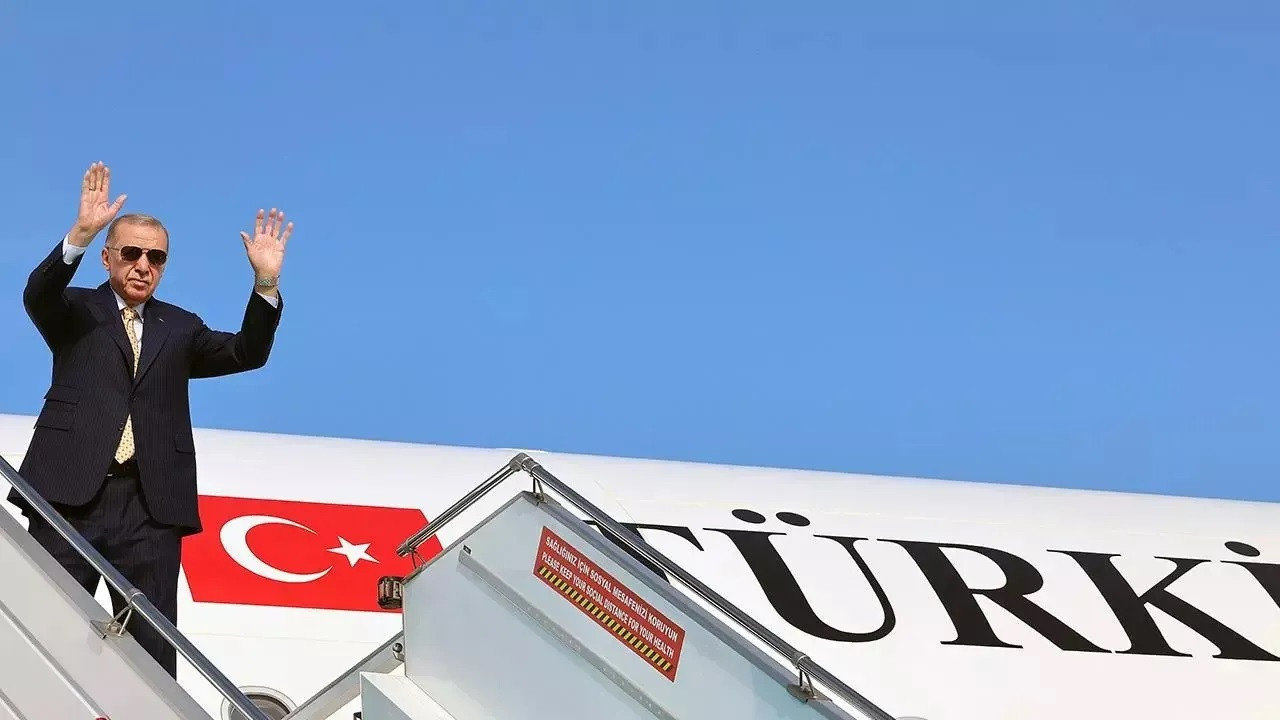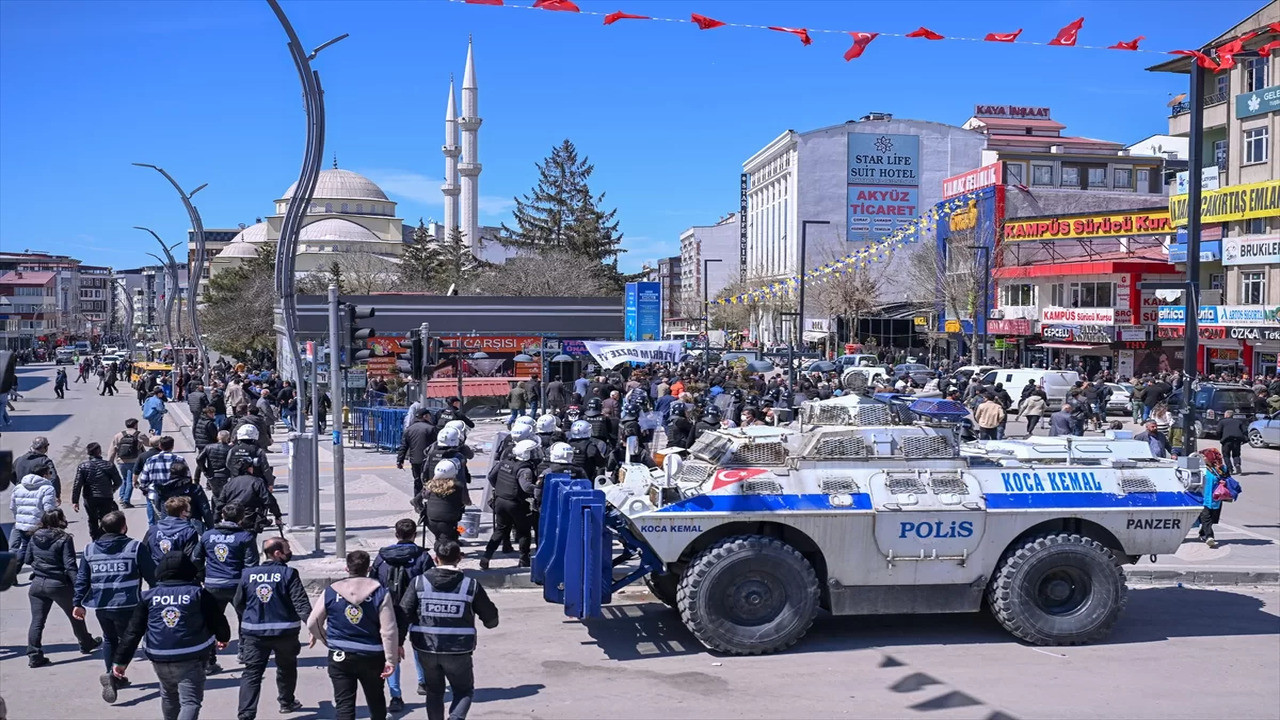Freedom Rally takes place in southeastern Diyarbakır despite police barricades
The Freedom Rally took place in Turkey's southeastern Diyarbakır province despite the five-day ban on demonstrations, events, meetings, and protest marches imposed by governors of five provinces. Entry and exit to these cities were also prohibited.
Duvar English
The "Freedom Rally," organized by the Democratic Institutions Platform and planned for days in the southeastern province of Diyarbakır, was blocked by a ban issued by the governor's office.
In Diyarbakır and many surrounding cities, the governor’s offices imposed a five-day ban on demonstrations, events, meetings, and protest marches. Entry and exit to these cities were also prohibited.
According to Mezopotamya Agency, people from different cities who wanted to travel to Diyarbakır were not allowed due to the ban.
The pro-Kurdish Peoples' Equality and Democracy (DEM) Party members gathered at departure points in various districts of Istanbul.
Police blocked those trying to leave, citing the ban. In response, some people bought tickets from other bus companies, while others set out in private vehicles.
In İzmir’s Konak district, a large number of people from Manisa, Aydın, Muğla, and Denizli gathered in front of the Democratic Regions Party (DBP) Aegean Regional Office.

Reacting to the police blockades, DEM Party İzmir co-chair Düzgün Küçük said they intended to travel to Diyarbakır to demand the release of the imprisoned Kurdistan Workers' Party (PKK) leader Abdullah Öcalan.
In protest of the blockades, party members staged a four-hour roadblock demonstration. They later marched to the Basmane neighborhood, where they issued a statement condemning the decision.
Joining the sit-in protest, DEM Party Central Committee member Fikret Çolakoğulları stated that their right to travel was being obstructed. "Our bus was stopped seven times. We are not allowed to pass through Bursa. We have documented this and will file a criminal complaint against those responsible," he said.
In Ankara, a large group gathered at Kurtuluş Park, intending to depart for the rally. Surrounded by police, the group was prevented from leaving and instead held a sit-in protest and made a press statement.
At the rally, DEM Party co-chair Tuncer Bakırhan criticized the police for frequently interrupting politicians' speeches during his address. Bakırhan stated, "The situation we are facing today is one that contradicts those who claim to bring peace to Turkey." He added, "Peace in Turkey cannot be achieved by a public servant interrupting the speech of our co-chair."
Bakırhan addressed the government, "You enforced isolation and locked the doors of İmralı. The economy collapsed, society decayed, and social tensions peaked. If the conspiracy and isolation policies had succeeded, thousands would not be mobilized here today. Your policy has failed; accept it. Turkey is in a serious state of gridlock." He continued,
"By locking the doors of İmralı, you are damaging the democracy of this country. You have spent millions to prevent the Kurdish language from being spoken and to enforce isolation.”
The party co-chair demanded the government to lift the isolation placed upon Öcalan. “Let us hear the voice of Mr. Öcalan, who advocates for peaceful and democratic coexistence. Mr. Öcalan is the hope for peace for the Kurdish people. You cannot confine Mr. Öcalan to a cell or a room. Mr. Öcalan is the worker in Istanbul and the women comrades in Amed.”
Bakırhan noted that the resolution of the Kurdish problem had two locations, the İmralı Island where Öcalan is prisoned, and the Turkish parliament.
“Open the doors of İmralı. We will continue to stand against these conspiracy and isolation policies. Mr. Öcalan’s outstretched hand for peace is the hope of this country.”
He emphasized that the DEM Party was ready to take all initiatives for a Kurdish solution. “Despite all the pain, suffering, and oppression, we are calling for peace in Turkey. We are saying, let’s not seek solutions through international avenues. In the recent local elections, the people said 'no' to isolation policies," Bakırhan concluded.


 Is a new peace process possible?World
Is a new peace process possible?World Erdoğan points to new constitution for possible new peace process with KurdsPolitics
Erdoğan points to new constitution for possible new peace process with KurdsPolitics Five Turkish governors impose protest bans ahead of pro-Kurdish DEM Party’s rallyPolitics
Five Turkish governors impose protest bans ahead of pro-Kurdish DEM Party’s rallyPolitics